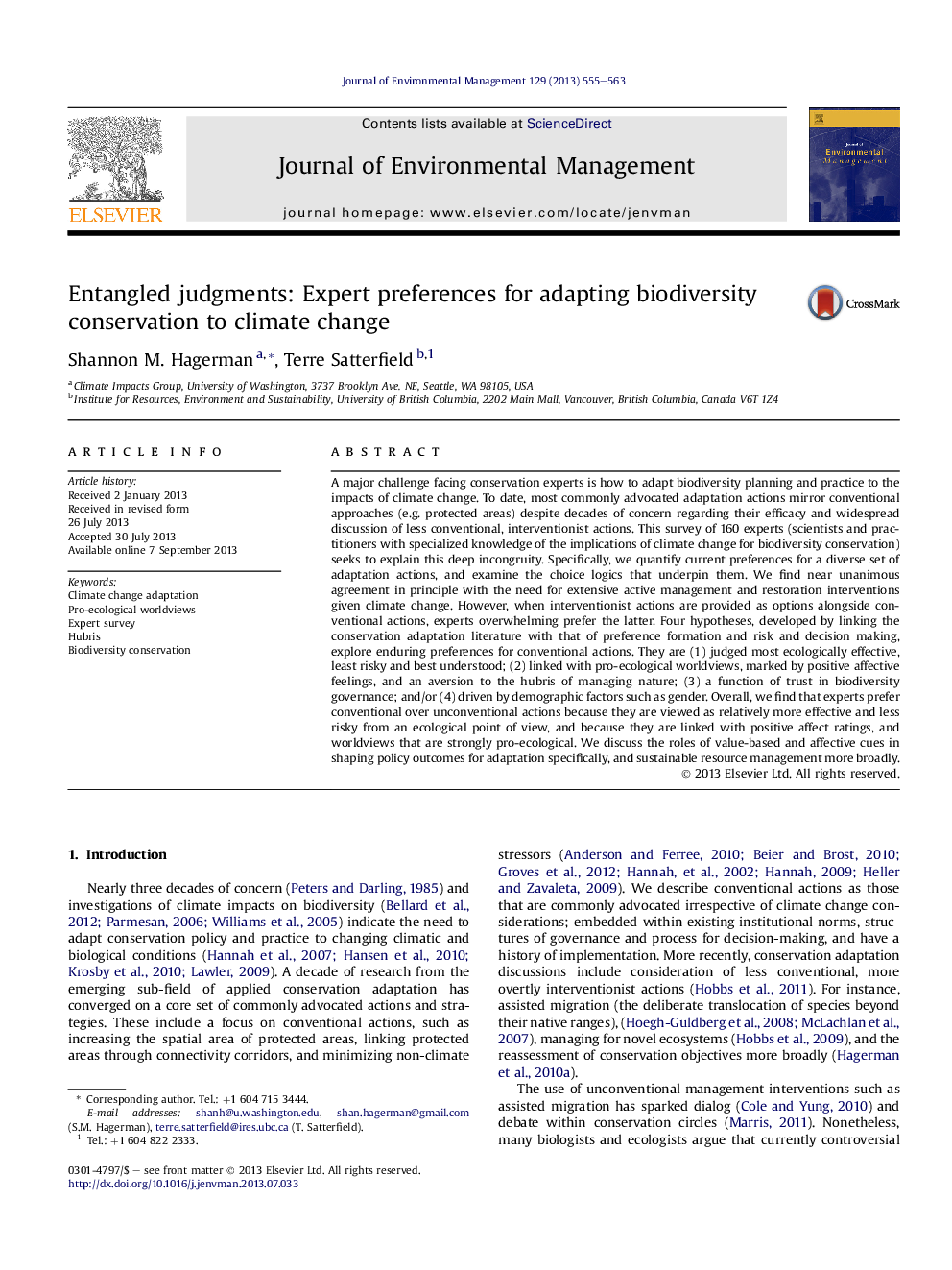| کد مقاله | کد نشریه | سال انتشار | مقاله انگلیسی | نسخه تمام متن |
|---|---|---|---|---|
| 1056199 | 1485283 | 2013 | 9 صفحه PDF | دانلود رایگان |

• We quantify the preferences of biodiversity experts for a set of adaptation actions.
• We examine the choice logics that underpin preferences for adaptation actions.
• Experts near unanimously agree with the need for extensive active management.
• However experts indicate conventional actions as the most important action.
• Judgments of effectiveness, pro-ecological views and affective cues shape preferences.
A major challenge facing conservation experts is how to adapt biodiversity planning and practice to the impacts of climate change. To date, most commonly advocated adaptation actions mirror conventional approaches (e.g. protected areas) despite decades of concern regarding their efficacy and widespread discussion of less conventional, interventionist actions. This survey of 160 experts (scientists and practitioners with specialized knowledge of the implications of climate change for biodiversity conservation) seeks to explain this deep incongruity. Specifically, we quantify current preferences for a diverse set of adaptation actions, and examine the choice logics that underpin them. We find near unanimous agreement in principle with the need for extensive active management and restoration interventions given climate change. However, when interventionist actions are provided as options alongside conventional actions, experts overwhelming prefer the latter. Four hypotheses, developed by linking the conservation adaptation literature with that of preference formation and risk and decision making, explore enduring preferences for conventional actions. They are (1) judged most ecologically effective, least risky and best understood; (2) linked with pro-ecological worldviews, marked by positive affective feelings, and an aversion to the hubris of managing nature; (3) a function of trust in biodiversity governance; and/or (4) driven by demographic factors such as gender. Overall, we find that experts prefer conventional over unconventional actions because they are viewed as relatively more effective and less risky from an ecological point of view, and because they are linked with positive affect ratings, and worldviews that are strongly pro-ecological. We discuss the roles of value-based and affective cues in shaping policy outcomes for adaptation specifically, and sustainable resource management more broadly.
Journal: Journal of Environmental Management - Volume 129, 15 November 2013, Pages 555–563